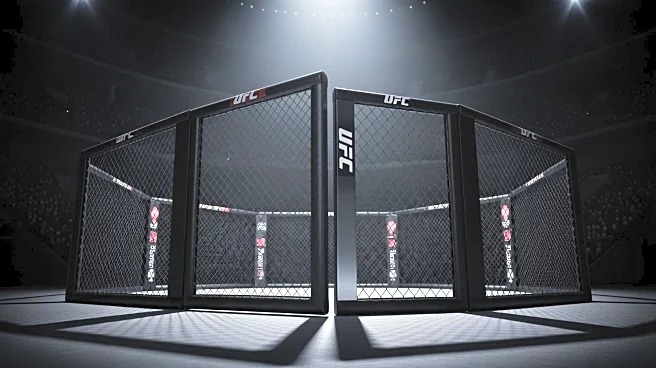What's Happening?
Carlos Prates, a UFC welterweight fighter, is determined to reassert his presence in the division following a significant victory. After suffering his first UFC loss to Ian Machado Garry in April, Prates faced Geoff Neal at UFC 319, where he delivered
a knockout with a spinning back-elbow in the final second of the first round. This victory was crucial for Prates, who felt the need to prove his capabilities after critics suggested he was no longer a serious contender due to his lifestyle choices. Prates acknowledged that his loss to Garry did not require major technical adjustments but rather a focus on listening to his coach and refining his approach in the gym.
Why It's Important?
Prates' victory over Neal is significant as it reestablishes him as a formidable competitor in the UFC welterweight rankings. This win not only boosts his confidence but also serves as a reminder to the division of his potential to challenge top fighters. The ability to bounce back from a loss and demonstrate resilience is crucial in the competitive world of mixed martial arts, where public perception can heavily influence a fighter's career trajectory. Prates' success may inspire other fighters facing similar challenges to focus on strategic improvements rather than drastic changes.
What's Next?
Looking ahead, Prates is likely to continue his pursuit of higher rankings within the welterweight division. His recent performance positions him as a contender for future high-profile matches, potentially against top-ranked fighters. The UFC community will be watching closely to see if Prates can maintain his momentum and secure a title shot. His ability to adapt and overcome criticism will be key in his journey to the top of the division.
Beyond the Headlines
Prates' journey highlights the importance of mental resilience and adaptability in sports. His experience underscores the impact of public perception on athletes and the necessity for fighters to manage external pressures while focusing on personal growth. This narrative may encourage discussions on the psychological aspects of combat sports and the support systems needed for athletes to thrive.















